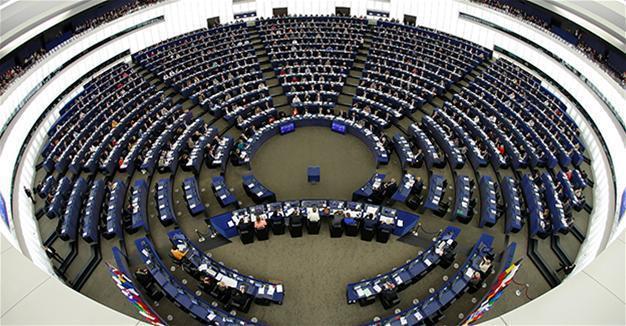Ankara in fury after Euro parliament vote
ANKARA/STRASBOURG

REUTERS photo
The Turkish government has reacted angrily to the European Parliament’s Nov. 24 overwhelming recommendation to freeze Ankara’s EU accession negotiations, with chief negotiator Ömer Çelik saying his government regards the decision as “void.”“On a day like this, I would not want to make statements over the EP’s [European Parliament] visionless decision. In reality, we regard this decision as void,” said Çelik, who is also Turkey’s EU minister.
“It is easy to talk like this in places where terror has not occurred. At a time when Turkey, which has a 1,295-kilometer border with Syria and Iraq, is involved in a heightened fight against terror, there are visionless and imprudent debates going on in Europe, instead of solidarity,” Çelik said in reaction to the non-binding vote.
Turkish Prime Minister Binali Yıldrım also called the parliament’s move “two-faced” and the result of “double standards.”
Some 479 of the votes in parliament were in favor of freezing the talks with Turkey while 37 were against it, and 107 abstained. The main reason behind the halt in negotiations was “disproportionate repressive measures” introduced under the state of emergency in Turkey that came after the July 15 coup attempt.
“MEPs strongly condemn the ‘disproportionate repressive measures’ taken by the Turkish government since the failed coup attempt in July 2016. These ‘violate basic rights and freedoms protected by the Turkish Constitution itself,’” according to the parliamentarians.
“Turkey is an important partner of the EU. But in partnerships, the will to cooperate has to be two-sided... Turkey is not showing this political will as the government’s actions are further diverting Turkey from its European path,” the members of the parliament noted.
It also noted that the re-introduction of the capital punishment would also pave way for the “formal suspension of the accession process,” as Turkey has already complied with the requirement set out by EU acquis – the legislation of the community.
Meanwhile, Çelik added that the decision was not binding but it bore a meaning as a “manifestation” of what has occurred between the two parties up until now.
“Unfortunately, they have signed a decision that will go down badly in history,” said Çelik, highlighting the vote’s timing, which he called the “situation in which relations with Europe were practically halted.”
“We are separating the values on which the European Parliament was established and this decision because these values are, like the founding fathers of Europe said, democracy and the state of law. But today members of the European Parliament have shown an attitude that clashed with its own values to a country that has defended its democracy to the death,” said Çelik.
President Recep Tayyip Erdogan also said on Nov. 23 said the vote was worthless while accusing Europe of taking the side of “terror organizations.”
Meanwhile, Republican People’s Party (CHP) deputy leader Öztürk Yılmaz said the decision paved the way for Turkey to become a “one-man regime” and reiterated his party’s continued support for the continuation of the negotiations.
“The decision, within the given circumstances that Turkey is in, is not a decision to help Turkey in its democratic struggle. On the contrary, it is a decision that paves the way for the government to continue on its own path,” Yılmaz said Nov. 24.
“They [EP] give the government leverage in the executive presidency debate so that the European Union cannot be a part of it. We think this is wrong. This decision is not legally binding; it is a political decision,” he said.
















